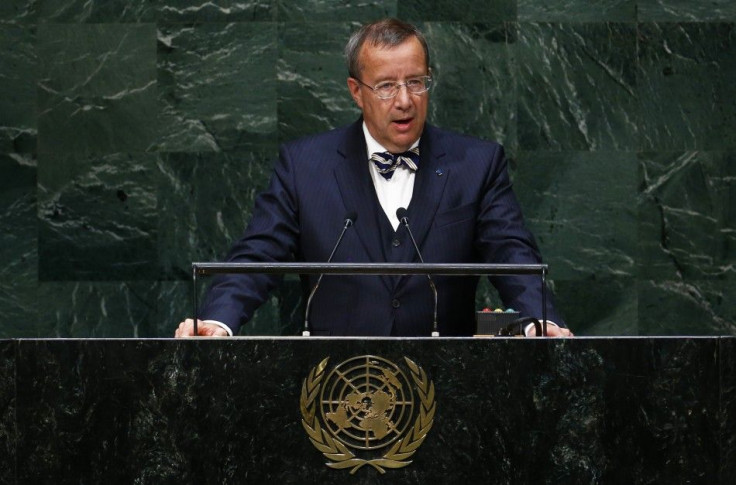Russia World Escalation: NATO-member Estonia Creates Border Task Force

NATO-member Estonia on Thursday announced it is set to create a new border control task force over fears it is set to experience Ukraine's plight in the hands of Russia in the coming months.
In September, Russia abducted Estonian security officer Eston Kohver, claiming the man was a spy who had drifted over the Russian side of the border.
Hanno Pevkur, Estonian interior minister, told the "Foorum" talk-show the Baltic nation will establish a special-forces units of border guards in 2015 to man their side of the line against Russia. He said the units be responsible in fighting human trafficking and cross-border crime, as well as conduct special operations based on risk assessments.
Despite obvious jitters, Estonia President Toomas Hendrik Ilves said he is confident of NATO support in the event of any Russian world escalation. Estonia is a member of the NATO since 2004. But a quarter of its population of 1.3 million is made up of ethnic Russians.
But over at the border between Russia and Estonia, the number of volunteers in army fatigues have risen. Known as Kaitseliit, or the Estonian Defense League, its members are now placed at 14,500, versus the professional military which was only at 3,800, according to the WSJ.
The volunteers are conducting battle training, called "fire and movement," in the woods outside Tallinn. Kevin Ungro, an 18-year-old student, told WJS he enlisted in the organisation because he wants to defend his homeland against Russia when the time comes. "The more people who know how to handle a gun, the better our chances of defending ourselves."
Helary Poolmaa, another student and Kaitseliit newbie, said Russia's aggravation and incursion into Ukraine had them all thinking about the possibility that it could be extended into their small Baltic nation. "If Russia can act like this in Ukraine, they are surely able to do the same thing here."
Mr Ilves, while admitting that most people in Estonia thought the Russian annexation of Crimea was good, said "if you ask them if they want to join Russia, they say no." One of the reasons is because Estonia residents enjoy free movement of labour across Europe, he said.
Citing as example the mining sector, he said a Russian miner in Donetsk gets only 200 euro a month, compared with a Russian miner in Estonia who receives 2,000 euro at the same timeframe.





















